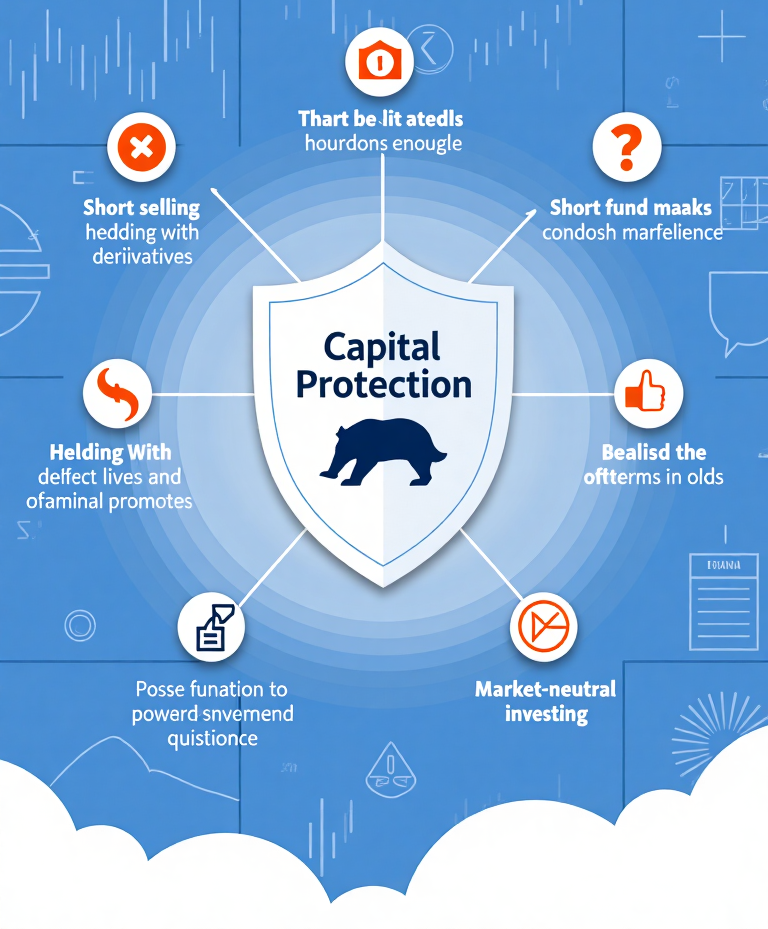Hedge Funds in Market Downturns: How They Protect Capital

Market downturns can be challenging for investors, with declining asset prices and heightened volatility creating an environment of uncertainty. Hedge funds, however, are uniquely positioned to weather such storms. With their flexible investment strategies and focus on risk management, they often aim to protect capital and even generate returns during bear markets.
Why Hedge Funds Excel in Downturns
Hedge funds differentiate themselves from traditional investment vehicles by using a variety of tools and strategies designed to thrive in volatile markets. Their success in downturns is often attributed to:
- Flexible Investment Strategies: Hedge funds are not constrained by market direction and can employ short-selling, derivatives, and other tactics to profit from falling prices.
- Active Risk Management: Many hedge funds use sophisticated models and stress testing to identify and mitigate risks early.
- Diverse Asset Classes: Hedge funds often invest in non-traditional assets like commodities, real estate, or currencies, which can perform well when equities falter.
Strategies for Capital Protection
- Short Selling:
Short selling allows hedge funds to profit from declining stock prices. For example, during the 2008 financial crisis, many hedge funds shorted mortgage-backed securities and banks, yielding substantial returns. - Market Neutral Strategies:
By balancing long and short positions, market-neutral funds aim to eliminate market risk, focusing solely on the performance of individual securities. - Global Macro Strategies:
These funds analyze macroeconomic trends to make large-scale bets on interest rates, currencies, or geopolitical events, often benefiting from market instability. - Hedging with Derivatives:
Options, futures, and swaps are frequently used to hedge against potential losses in traditional investments.
Examples of Hedge Funds Thriving in Downturns
- Paulson & Co. (2008): John Paulson’s bet against subprime mortgages earned his fund billions during the financial crisis.
- Bridgewater Associates (2020): During the pandemic, Ray Dalio’s fund used risk parity strategies to navigate early market volatility effectively.
Challenges in Market Downturns
Despite their advantages, hedge funds are not immune to losses in turbulent markets. Common challenges include:
- Leverage Risks: Overleveraged funds may face amplified losses if their bets go wrong.
- Liquidity Constraints: Certain investments, like real estate or private equity, may become difficult to sell during downturns.
- Investor Redemptions: Panicked investors may pull out funds, limiting a hedge fund’s ability to execute its strategy.
The Importance of Due Diligence
For investors considering hedge funds as a buffer against market downturns, thorough research is critical. Assess factors such as:
- Track Record: How has the fund performed in past bear markets?
- Risk Management: What tools and strategies does the fund use to mitigate risks?
- Liquidity Terms: Can investors withdraw their capital easily during market stress?
The Takeaway
Hedge funds can play a valuable role in protecting capital during market downturns. While their strategies involve higher complexity and fees, their ability to profit from declining markets and diverse investment opportunities makes them a compelling option for sophisticated investors.




